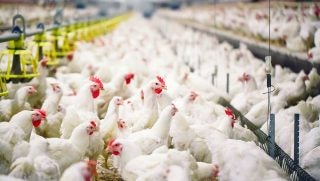In drought years, producers are always looking for ways to continue to produce high- yielding crops while also reducing their water intake. A new solution is available for producers looking to diversify their crop rotation.
Proso millet, a crop that makes more grain from less water than any other, has been neglected by the seed industry for many years. But that is starting to change. In the summer of 2021 farmers across the state of Colorado had the chance to try seed of two new varieties of proso millet — DLG 40 and DLG 240 — developed by Dryland Genetics, a plant breeding start-up founded by scientists from the University of Nebraska-Lincoln and Iowa State University.
“The DLG 240 looked like it would yield a bit more all season, when we harvested it we were pleased with the yields. It was 33% higher yielding than our regular millet. It was also more consistent throughout the field and later maturing and that gave it the chance to add more yield,” said Kent Kalcevic, a farmer near Benett, Colorado. who tried out the new DLG 240 variety of proso millet.
Elevators are paying high prices for proso millet this year: between $8 and $10/bushel, higher than corn and roughly matching the current price of wheat. “Different customers reported a whole range of yields,” said Craig Anderson, Dryland Genetics’ COO, “but we have consistently seen increases of 20% or more per acre, delivering an additional $48 to $60 net profit per acre.”
“Our experience with Dryland Genetics’ seed DLG 240 and DLG 40 has shown us that their seed will produce at least 20%, up to 40%, over the variety (Huntsman) we’ve been using,” said Chris Stum, a Towner, Colorado farmer and the president of the High Plains Millet Association.
“With input costs increasing for farmers, the extra $50/acre that Dryland Genetics’ proso millet varieties can bring to growers couldn’t be arriving at a better time,” Stum added. In addition, many farmers grow proso millet without the need to apply any nitrogen fertilizer, typically a major cost when growing corn or wheat.


